June 7, 2025 | 15:24 GMT +7
June 7, 2025 | 15:24 GMT +7
Hotline: 0913.378.918
June 7, 2025 | 15:24 GMT +7
Hotline: 0913.378.918
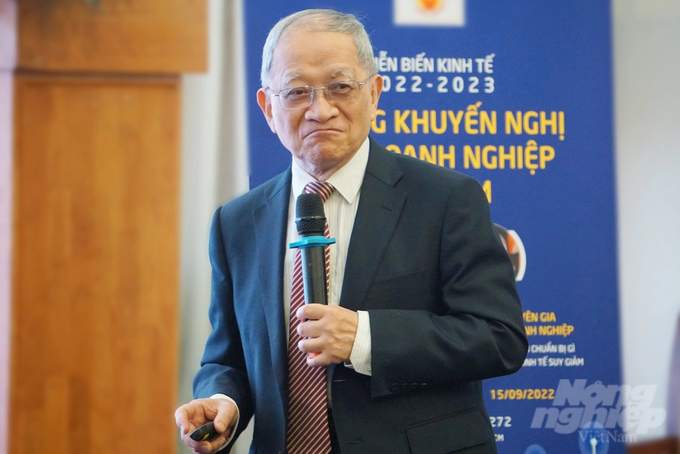
Prof. Le Dang Doanh, Director of the Central Institute for Economic Management. Photo: Nguyen Thuy.
Prof. Le Dang Doanh shared his thoughts at the Workshop "Analysis of Vietnam's economic situation from 2022 to 2023 and its impact on businesses" organized by the Association of High-Quality Vietnamese Goods (HVNCLC) on September 15. The Director of the Central Institute for Economic Management said that, in the two Covid-19 pandemic years, businesses "failed", facing many financial difficulties, with round-robin debt while lending interest rates increasing (15-16%/year). On the other hand, administrative procedures are troublesome, overlapping, and cost time and money. This makes businesses less competitive; slows the disbursement of relief packages to workers in many provinces…
Meanwhile, inflation escalated in most countries around the world, and prices of many food items and merchandise like wheat and cereals, meat, and cooking oil... increased sharply. This is the result of many different factors, including the sharp increase in fertilizer and gasoline prices over the past year and the impact of the Russia-Ukraine conflict. The conflict drastically reduces the supply of wheat from these two countries. Currently, some countries have banned the export of wheat, oats, sugar, and palm oil... causing serious supply disruptions from some countries. Consequently, prices increase even more sharply.
According to Prof. Doanh, the inflation rate with failed agriculture and drought in other countries have destroyed the income of many people. The purchasing power of Vietnam's traditional markets decreased.
In the complicated context of the 2 Covid-19 pandemic years, agriculture is a solid economic foundation for Vietnam. Agriculture has to withstand the pressure of increasing input prices, so Prof. Doanh said that Vietnam's agriculture needs investment, restructuring, and modernization.
The most important thing is to correct the land law and create conditions for agriculture to switch to large-scale, and produce in large sample fields while implementing mechanization and use of drones to spray pesticides, fertilize, and implement modern irrigation technologies… “Those are technologies that help improve the efficiency of Vietnamese agriculture. Note that businesses should build greenhouses to produce high-quality agricultural products such as fresh flowers, high-grade fruits... for export, "said Prof. Doanh.
Prof. Doanh said that there will be unstable fluctuations. Businesses should closely monitor the situation and contact research agencies according to the world situation in the last four months of 2022. However, the Russia-Ukraine conflict, or developments in India's rice exports... also create opportunities, opening up the possibility of Vietnam boosting exports. “Rice may be caught up in this craze. The Food Price Index of the Food and Agriculture Organization of the United Nations (FAO) has shown that world rice prices have increased silently for five consecutive months. Rice prices hit a 12-month high, according to the data about May released last week. With the increase in rice prices, Vietnam can benefit from rice exports," said Prof. Doanh.
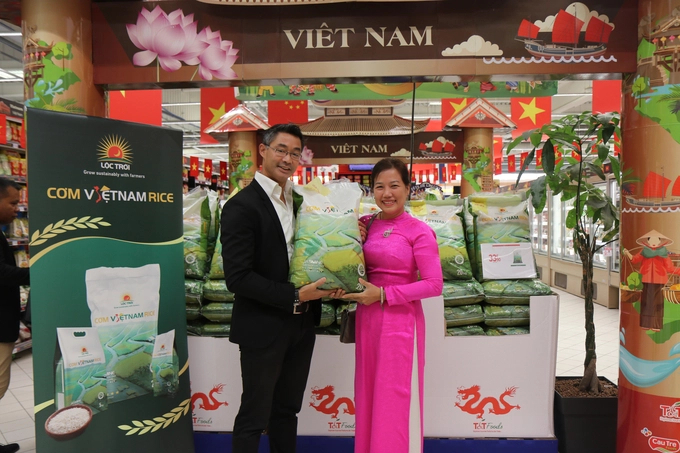
Loc Troi rice with the brand name "Com Viet Nam Rice" officially hit the shelves of Europe's largest modern supermarket system on September 6.
Also according to Prof. Doanh, the world economy fluctuates with low growth. The International Monetary Fund has adjusted the world economic growth five times, recently correcting it to as low as 2.6%. Meanwhile, the US banks raised interest rates to curb US inflation, affecting the world. "Vietnam needs to consider carefully and make appropriate adjustments because Vietnamese exports are all signed and sold in US dollars".
Currently, the US imposes tariffs on Chinese goods up to 270% and Chinese goods cannot enter the US market. This is an opportunity for Vietnamese businesses, though this does not mean rushing into this market without strict control on quality, and product origin standards…
Vietnam implements a policy of diversifying and multilateralizing economic relations to avoid dependence on one partner, joining the CPTPP and RCEP. Vietnam also signed 15 Free Trade Agreements (FTAs) with 59 economies, the EU (EVFTA), the UK, and other countries, expanding economic relations and import-export markets, and attracting foreign investment. However, Prof. Doanh said that Vietnam has not taken full advantage of the opportunities opened up.
Currently, the household economy accounts for 32% of the economy. Vietnam has 5 million urban households and 5 million rural households.
Also according to Dr. Doanh, the World Bank forecasts that Vietnam will only become an industrialized country in 2035, with agricultural GDP of <10%. “Agriculture will have to continue to grow steadily at 1.75% per year as a safe foundation for the Vietnamese economy,” said Prof. Doanh.
According to Dr. Doanh, it is necessary to make more efforts to develop "ethnic businesses" instead of giving too much preference to foreign investment like in some places. Quickly link those households into new businesses that have the opportunity to participate in the export market. To do so, local agencies and associations need to cooperate to help these businesses develop. Businesses need to coordinate with research agencies to determine the purchasing power, marketability, demand, and supplying the appropriate item.
Translated by Hoang Duy
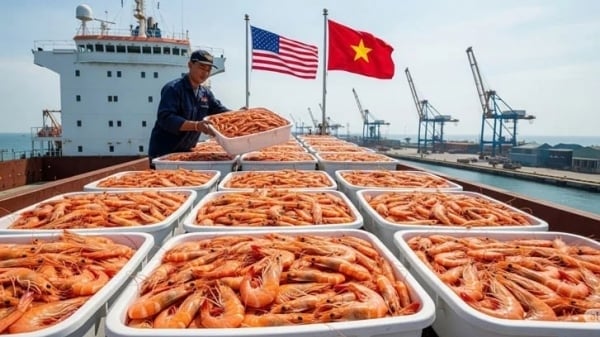
(VAN) Vietnam and the United States are proactively working together, each in their own way, to ensure that every container of agricultural goods carries not just products, but also long-term trust and value.
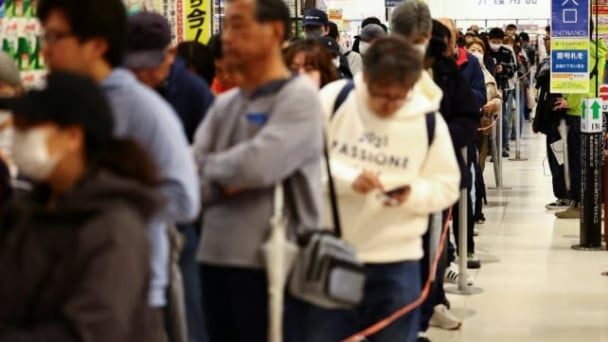
(VAN) Stores have started selling rice from the government’s stockpile to feed demand for the staple.
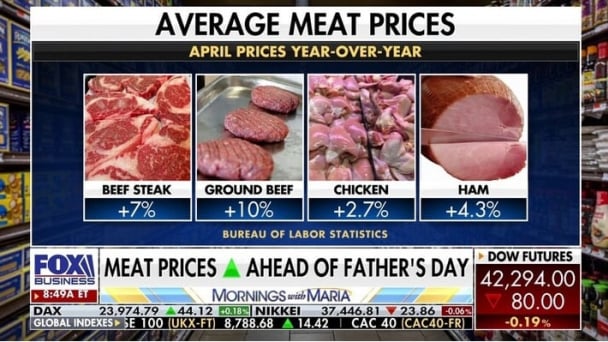
(VAN) Omaha Steaks CEO says rebuilding cattle herds will take about a year to ease price pressures.
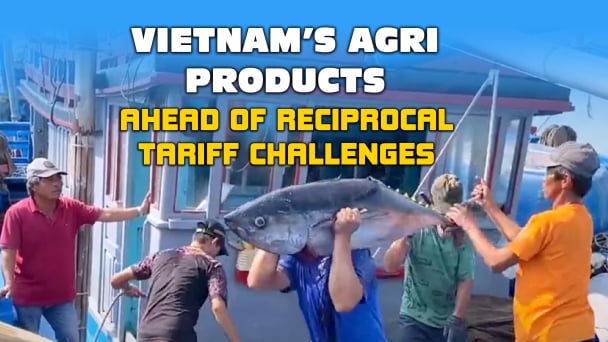
(VAN) Reciprocal tariffs and recent NOAA rulings are presenting substantial obstacles for Vietnamese tuna exporters in the U.S. market. As a result, the industry is actively seeking alternative export destinations.
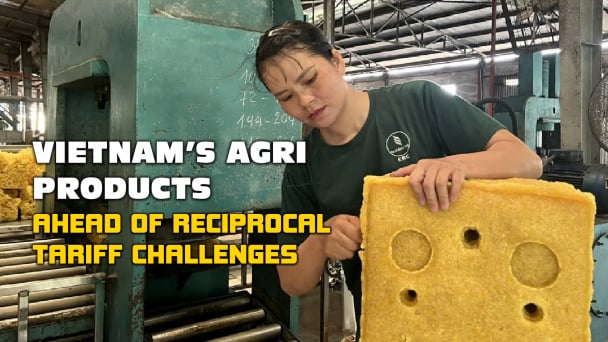
(VAN) Although the U.S. holds a small share of Vietnam’s rubber exports, newly imposed reciprocal tariffs are expected to impact the sector. Vietnamese enterprises must optimize the use of significant markets and free trade agreements.
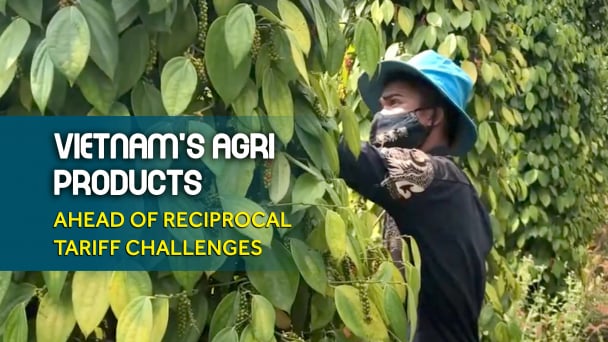
(VAN) Vietnam's pepper industry is looking forward to the final tariff decision in order to sustain its robust presence in the United States, the country's biggest pepper market.

(VAN) The U.S. is the largest market for Vietnamese cashew nuts. However, when exports to the U.S. encounter difficulties due to reciprocal tariffs, Vietnamese cashews still have many other potential markets.